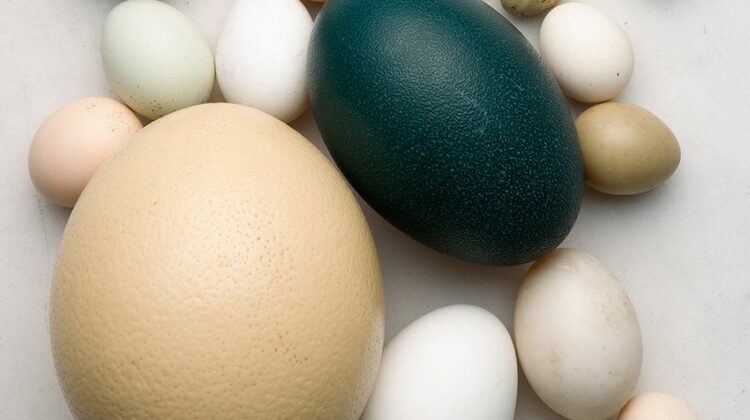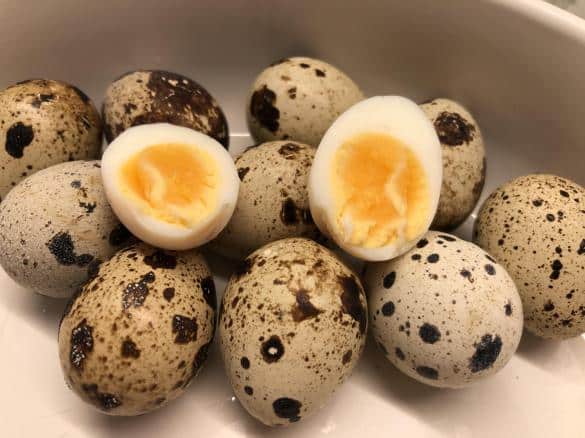
Eggs are a highly nutritious food that can provide many health benefits. They are a great source of protein, vitamins, and minerals, and can be consumed in a variety of ways. In this blog, we’ll explore the different kinds of eggs and their nutrition facts to help you make informed choices when it comes to incorporating eggs into your diet.
Egg Nutrition Benefits
- Eggs are a great source of high-quality protein, which is essential for building and repairing muscles.
- They are also a good source of vitamins and minerals, such as vitamin D, vitamin B12, selenium, and choline.
- Choline is an important nutrient that is essential for brain health and development 147 milligrams of choline, or roughly 27% of the daily allowance for adults, can be found in one large egg. Choline is also important for liver function and can help reduce the risk of liver disease.
- Eggs are also rich in antioxidants, including lutein and zeaxanthin, which can help protect the eyes from age-related damage. These antioxidants can also reduce the risk of cataracts and macular degeneration.
- In addition, eggs are low in calories and can help promote weight loss. The high protein content in eggs can help you feel full for longer, which can reduce cravings and prevent overeating.
Also Know: 6 Useful Benefits Of Eggs For Your Workout Routine
Types Of Eggs
Eggs come in many shapes, sizes, and flavors. Each type of egg has its own unique characteristics and uses, making them a versatile ingredient in any kitchen. Whether you prefer chicken eggs for breakfast or quail eggs in your salad, there is an egg for every taste and occasion.
1. Chicken Eggs

Chicken eggs are the most common type of eggs and are widely available in supermarkets. They are available in several sizes, ranging from tiny to extra-large. The color of the eggshell can vary from white to brown, and there is no nutritional difference between the two. Chicken eggs are rich in protein, vitamins, and minerals, making them a healthy addition to any diet.
Chicken eggs are the most commonly consumed type of egg and come in various sizes and colors. Here are the nutrition facts for a large chicken egg:
Chicken Egg Nutrition
- Calories: 72
- Protein: 6 grams
- Fat: 5 grams
- Saturated Fat: 1.6 grams
- Carbohydrates: 0.4 grams
- Fiber: 0 grams
- Sugar: 0.2 grams
- Cholesterol: 186 milligrams
- Sodium: 71 milligrams
- Vitamin D: 6% of the Daily Value (DV)
- Calcium: 2% of the DV
- Iron: 5% of the DV
- Potassium: 69 milligrams
2. Duck Eggs

Compared to chicken eggs, duck eggs are bigger and taste better. They are commonly used in baking due to their higher fat content and can be substituted for chicken eggs in most recipes. Duck eggs have a thicker shell than chicken eggs, which makes them ideal for pickling.
Duck eggs are less commonly consumed than chicken eggs, but they have a richer taste and larger yolk. Here are the nutrition facts for a large duck egg:
Duck Egg Nutrition
- Calories: 130
- Protein: 9 grams
- Fat: 10 grams
- Saturated Fat: 3.5 grams
- Carbohydrates: 0.6 grams
- Fiber: 0 grams
- Sugar: 0.6 grams
- Cholesterol: 619 milligrams
- Sodium: 102 milligrams
- Vitamin D: 10% of the DV
- Calcium: 6% of the DV
- Iron: 11% of the DV
- Potassium: 170 milligrams
3. Quail Eggs

Little quail eggs have a delicate, mild flavor. They are a popular ingredient in Asian cuisine, often served boiled or pickled. Quail eggs are rich in vitamins and minerals, making them a nutritious addition to salads or as a snack. Here are the nutrition facts for five quail eggs:
Quail Egg Nutrition
- Calories: 71
- Protein: 6 grams
- Fat: 5 grams
- Saturated Fat: 1.4 grams
- Carbohydrates: 0.4 grams
- Fiber: 0 grams
- Sugar: 0.2 grams
- Cholesterol: 470 milligrams
- Sodium: 140 milligrams
- Vitamin D: 2% of the DV
- Calcium: 2% of the DV
- Iron: 8% of the DV
- Potassium: 95 milligrams
4. Turkey Eggs

Turkey eggs are similar in size to chicken eggs but have a milder flavor. They are less commonly available than other types of eggs, but they are still used in some cuisines. Turkey eggs are higher in protein than chicken eggs, making them a good choice for athletes and bodybuilders.
Turkey eggs are similar in taste and nutrition to chicken eggs, but they are less commonly consumed. They are larger than chicken eggs and have a thicker shell. Here are the nutrition facts for a large turkey egg:
Turkey Egg Nutrition
- Calories: 135
- Protein: 11 grams
- Fat: 9 grams
- Saturated Fat: 3 grams
- Carbohydrates: 0.6 grams
- Fiber: 0 grams
- Sugar: 0.6 grams
- Cholesterol: 684 milligrams
- Sodium: 108 milligrams
- Vitamin D: 8% of the DV
- Calcium: 4% of the DV
- Iron: 12% of the DV
- Potassium: 143 milligrams
5. Goose Eggs

Goose eggs are larger and more flavorful than chicken eggs. They are commonly used in baking, and their large size makes them ideal for making large omelets or frittatas. Goose eggs have a thicker shell than chicken eggs, which makes them ideal for carving or decorating. Here are some Nutrition value.
Goose Egg Nutrition
- Calories: 226
- Protein: 20 grams
- Fat: 19 grams
- Saturated Fat: 5.2 grams
- Carbohydrates: 1.9 grams
- Fiber: 0 grams
- Sugar: 1.4 grams
- Cholesterol: 1227 milligrams
- Sodium: 199 milligrams
- Vitamin D: 12% of the Daily Value (DV)
- Calcium: 7% of the DV
- Iron: 29% of the DV
- Potassium: 302.4 milligrams
6. Emu Eggs

Emu eggs are the largest of all eggs and can weigh up to 2 pounds. They have a mild flavor and a thick shell that makes them ideal for carving or decorating. Emu eggs are not commonly available, but they are a delicacy in some countries. Here are some nutrition value of Emu egg.
Emu Egg Nutrition
- Calories: 670
- Protein: 24 grams
- Fat: 40 grams
- Carbs: 4 gram
Also read: Everything about Emu Eggs
How to Incorporate Eggs Into Your Diet
There are many ways to incorporate eggs into your diet to gain the egg nutrition value. Here are some ideas:
- Scrambled eggs: Scramble eggs with a little bit of milk or water and season with salt and pepper. Add vegetables like spinach, mushrooms, and tomatoes for extra nutrition.
- Boiled eggs: Boil eggs for 7-8 minutes for a perfect hard-boiled egg. Peel and enjoy as a snack or slice onto a salad.
- Omelets: Whisk eggs with milk and pour into a hot skillet. Add your favorite vegetables and cheese for a delicious and nutritious breakfast.
- Frittatas: A frittata is similar to an omelet but is baked in the oven. Add vegetables, cheese, and herbs for a tasty and filling meal.
- Egg salad: Mash hard-boiled eggs with mayonnaise and chopped vegetables like celery and onion for a classic egg salad.
Conclusion
Eggs are a versatile and nutritious food that can provide many health benefits. Whether you prefer chicken, duck, quail, or turkey eggs, incorporating eggs into your diet can help you meet your protein and nutrient needs. As well as will provide proper egg nutrition needed for the body.
With so many delicious ways to prepare and enjoy eggs, they are a great addition to any meal or snack. So, the next time you’re looking for a healthy and tasty food, consider reaching for an egg.
Leave a Reply
You must be logged in to post a comment.